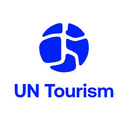The World Tourism Organization And Globalia Launch The 2nd Global Tourism Start-Up Competition
- The initiative has received backing from partners such as Telefónica, Amadeus, Intu and Distrito Digital Valencia.
- Proposals from around the world will begin arriving 13 September at Wakalua, Globalia's tourism innovation hub.
St. Petersburg (Russia) - The World Tourism Organization (UNWTO) has joined Globalia, a leading tourism group in Spain and Latin America, to launch the second edition of the UNWTO Global Tourism Start-up Competition. After the success of the first edition, which attracted 3,000 applications from across the globe, the world's largest start-up competition for tourism has returned to identify ideas and innovators who will lead the transformation of the sector.
The new call for proposals was announced during the 23rd General Session of the UNWTO General Assembly in St Petersburg, Russian Federation. Announcing the news, UNWTO General-Secretary stressed the important role innovation can play in making tourism a central part of the Sustainable Development Agenda.
"With this competition we are exploring new terrain in tourism, innovation, entrepreneurship and sustainable development. We have succeeded in bringing together the most relevant stakeholders in the progress of our sector and its relevance on a global scale", said Zurab Pololikashvili.
Joining him for the announcement, Globalia CEO Javier Hidalgo emphasised the collaborative effort of this second edition, with support from partners including Telefónica, Amadeus, Intu and Distrito Digital Valencia.
"Wakalua will help us to foresee a bright, sustainable, and profitable future. It will help us to promote a circular economy and foster social development. Globalia knows that the tourism of the future will not be the same as the tourism of yesterday. It needs to be better for our planet, for our kids, and the environment. This competition will help us to achieve those goals through technology and innovation", said Globalia's CEO.
The new partners will actively engage in promoting the project's five categories in addition to choosing the best solutions and most disruptive projects based on new business models:
Smart mobility
In partnership with Telefónica, this category is for projects that improve travel quality and facilitate user mobility on any type of transport. The aim here is to reduce economic, environmental and time-related costs.
Smart Destinations
This category, supported by Distrito Digital Valencia, is for ideas that improve the sustainability and profitability of a destination from an economic, environmental and socio-cultural perspective, with technology shown to promote innovation and accessibility in an increasingly globalised world.
Deep Tech, rethinking localisation and geolocation
Awarded in partnership with Amadeus, this category is for ideas that provide a unique value to tourists and travel companies through localization systems. The category will be focused on ideas for using data extracted through AI and localization technology to make trips even easier. These ideas can be used to identify tourist destinations, link them to nearby airports, extract data on image, text or video localization, optimise urban routes, analyse reviews about locations and much more.
Disruptive hospitality
In collaboration with Intu, this category is aimed at identifying new or already established companies from all over the world to help Globalia give guests of the future a first-class experience in every way.
Rural development
Globalia will make a special effort to provide solutions for the forestry, agricultural and rural sectors, aiming to bolster the transfer of knowledge and innovation and improve viability and competitiveness. This category also seeks companies that work in risk management, animal welfare and the restoration, preservation and improvement of ecosystems, with a continuous focus on promoting the shift towards a decarbonised economy.
Furthermore, UNWTO will award a special sustainability prize to lend visibility to projects that are committed to more efficient tourism.
This annual competition is a major project from Wakalua, Globalia's tourism innovation hub, which will guide the winning start-ups, connect them with leading companies in the sector and support them as they scale-up their ideas. To accomplish this, UNWTO and Globalia have the support of the innovation consultancy firm Barrabes.
In the first call, 20 startups in 12 countries reached the semifinals and finals held in Budapest and Madrid, respectively. The tax return company Refundit, was the winner and Globalia, as a financial partner, also invested in Freebird together with Portugal Ventures, established a joint venture with Tripscience and launched a pilot with Pruvo.
The call for proposals for the 2nd UNWTO Tourism Startup Competition will be launched worldwide and will end on 15 November. The winners will be announced on 21 January 2020 during a gala event held during the Madrid International Tourism Fair (Fitur).
For more information and registration materials, visit www.tourismstartups.org.
About Globalia
Globalia is the largest tourist group in Spain and Latin America, with an annual revenue of nearly €4 billion in 2018. Operating in more than 60 countries and with 15,000 employees, Globalia offers services to all sectors of the tourism industry. It comprises a number of independent companies that are leaders in their markets, including Air Europa (airline), Halcón Viajes (travel agencies), Travelplan (tour operator), Be Live (hotel chain) and Groundforce (airport ground handling).
About UN Tourism
The World Tourism Organization (UN Tourism), a United Nations specialised agency, is the leading international organisation with the decisive and central role in promoting the development of responsible, sustainable and universally accessible tourism. It serves as a global forum for tourism policy issues and a practical source of tourism know-how. Its membership includes 166 countries, 6 territories, 2 permanent observers and over 500 Affiliate Members from the private sector.
Media enquires: [email protected]
UN Tourism Communications Department
+34 91 567 8100
UN Tourism
